- Government of Montenegro
PM Marković in interview with Pobjeda: We show det...
PM Marković in interview with Pobjeda: We show determination and ability to defend vital national interests
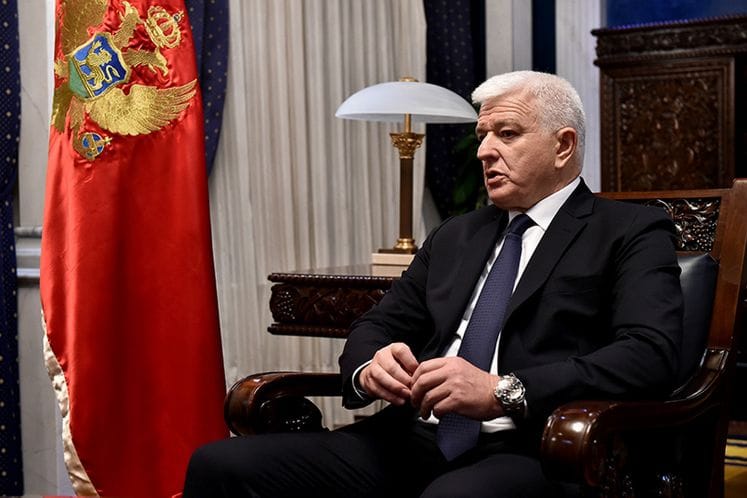
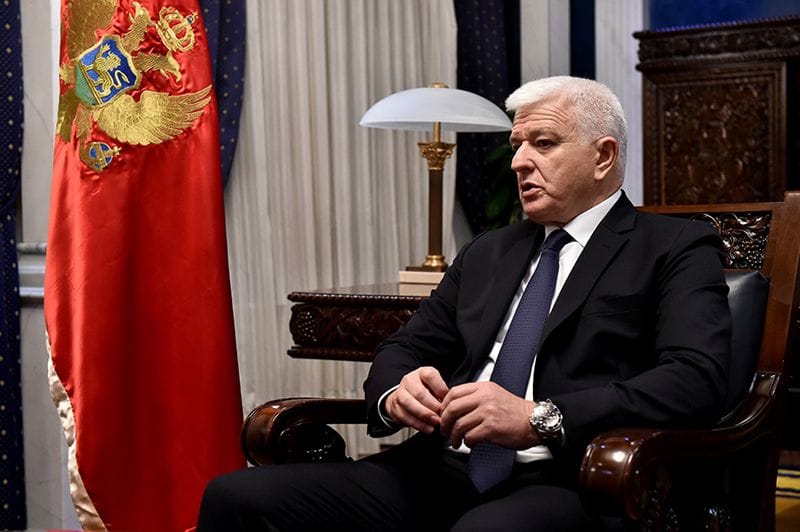
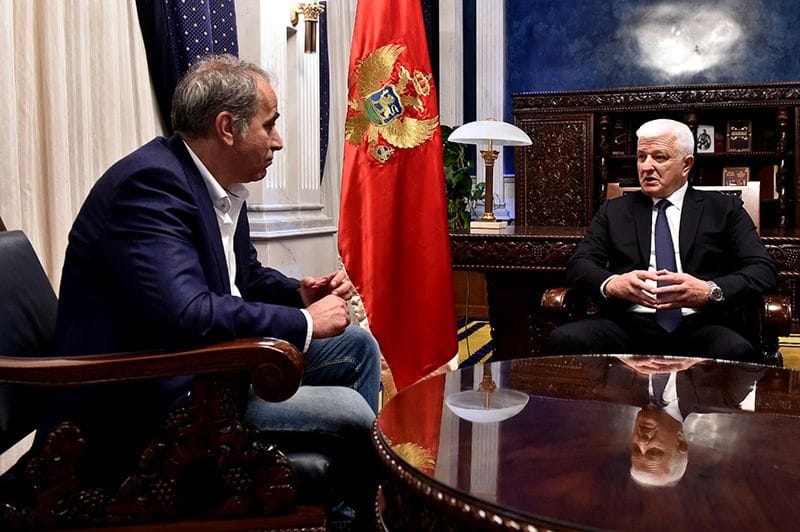
Podgorica,
Montenegro (21 May 2018) -- Prime Minister Duško
Marković gave an interview to the Podgorica-based Pobjeda daily on the
occasion of the Independence Day, in which he said that in the past twelve
years, Montenegro managed to significantly increase the living standard of
citizens of EUR 3,460 of gross domestic product per capita in 2006 to double,
as well as to increase the average salary from EUR 286 in 2006 to EUR 510 in
2018. He also added that we left the most complex and worst part of the
transition behind, that along with strong general investment activities, we
launched grandiose projects of motorway and submarine cable, and that we showed
determination and ability to defend vital national interests when they were
endangered.
"During the
October 2015 protest and the scenario prepared for the autumn of 2016, Montenegro
was exposed to unprecedented internal and external aggression, which was political,
and security, and economic. Today, the scale of that scenario is seen, with all
the possible consequences. We are witnessing that there is an attempt to place
a thesis that the target of this aggression in Montenegro in 2015 and 2016 was
not Montenegro, but supposedly only its path to NATO. These are absurd excuses.
Because if they had succeeded in their intentions, a democratic and European
government would have been erased, and the state of Montenegro would turn to another
system of values. The dangers still persist. But when you show your resistance,
determination and ability to defend vital national interests, then your
opponents are more careful. I would say, therefore, that the danger did not
pass, but its intensity is weaker," Prime Minister Duško Marković said in
an interview.
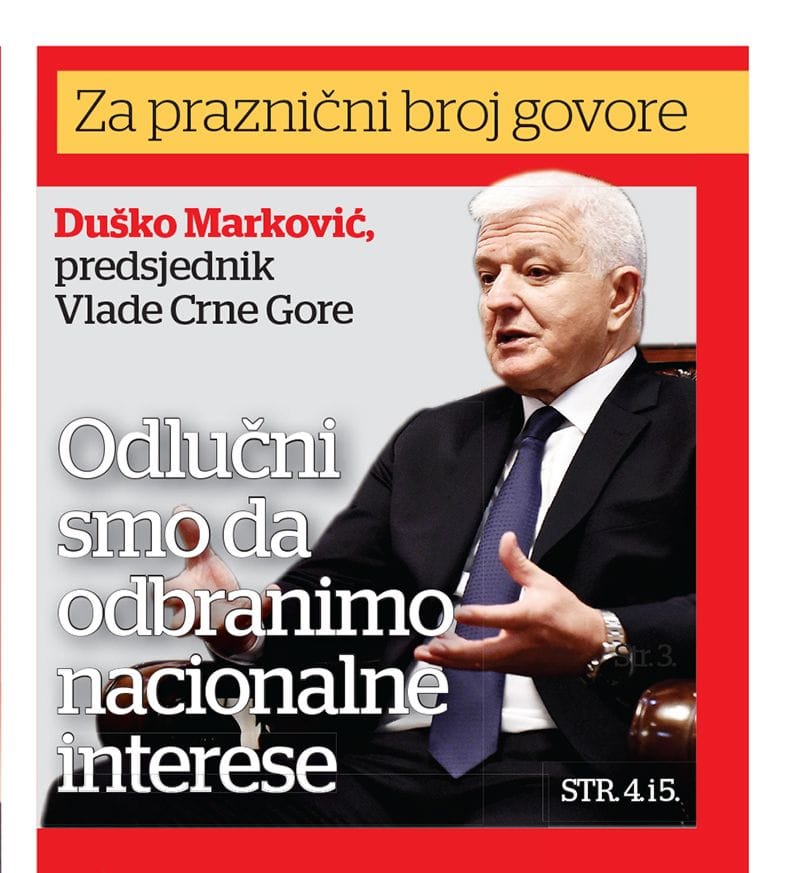
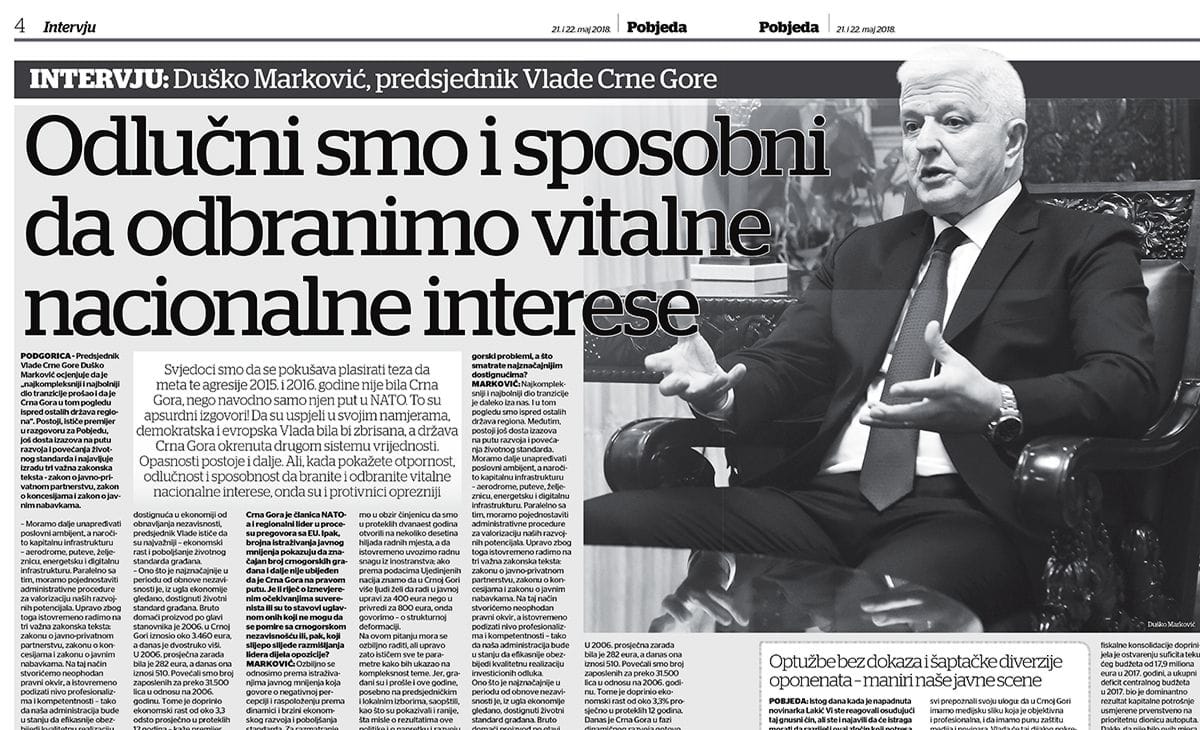
Asked to evaluate
Montenegro's greatest achievements and problems in the past period, Prime
Minister Marković presented a series of information on the progress of our
country, but he also pointed to the challenges ahead.
"The most
complex and the most painful part of the transition is far behind us. And in
that respect, we are ahead of other countries of the Region. However, there are
still many challenges in the way of developing and increasing living standards.
We need to further improve the business environment, especially the capital
infrastructure – airports, roads, railways, energy and digital infrastructure. In
parallel, we need to simplify the administrative procedures for making the best
use of our development potentials. For this reason, we simultaneously work on
three important legal texts: the Law on Public-Private partnership, the Law on
Concessions, and the Law on Public Procurement. In this way, we will create the
necessary legal framework, while at the same time raising the level of
professionalism and competence – so that our administration will be able to
more effectively ensure the quality realisation of investment decisions,"
the Prime Minister said.
The Prime
Minister noted that the gross domestic product per capita in Montenegro
amounted to about EUR 3,460 in 2006, and today it is twice as high.
"In 2006,
the average salary was EUR 282, and today it is EUR 510. We increased the
number of employees for over 31,500 persons in comparision to 2006. Economic
growth of about 3.3% on avarage over the past 12 years contributed to this.
Today, Montenegro is at the stage of dynamic development of almost all sectors
of the economy. In the past few years, we launched two grandiose, and I can
say, historical infrastructure projects –
motorway and submarine energy cable, total value of which is close to two
billion euros. In tourism, we contracted projects worth more than three billion
euros. The record tourist season of 1987 was surpassed by the season of 2017,
and data from the first four months of 2018 unambiguously indicate that this
year we will surpass the last year's result. In the Northern region there has
never been so much dynamic investment in infrastructure and tourism facilities
and in the agriculture. The strong investment activity in the country is
witnessed by economic growth of 4.4% in the past year, which is one of the
highest growth rates in Europe. This resulted in the opening of more than four
thousand new jobs in 2017, and a reduction in the unemployment rate to 16.1%.
Data for the first quarter of 2018 show that there is a possibility that last
year's economic growth rate will be achieved this year as well," the Prime
Minister stated.
When asked about
the extent of the last week's EU-Western Balkans Summit in Sofia, the Prime
Minister assessed that we should all be satisfied with the results because the
European Union finally realised the needs for development and integration
within the Western Balkans, which includes the Adriatic-Ionian transport
corridor.
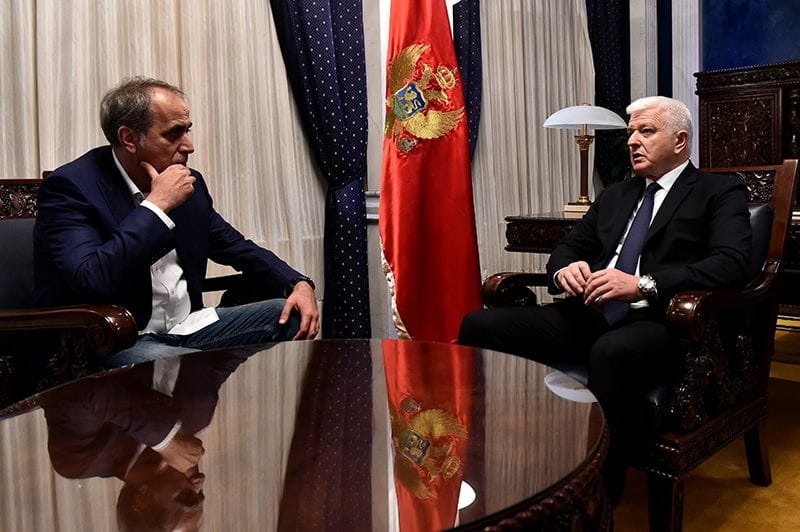
When it comes to
Montenegro, the Prime Minister expressed satisfaction with the results of
meetings with the chancellors of Germany and Austria and the prime ministers of the
Netherlands and Finland, and also with the fact that the leadership position of
Montenegro in European integration was confirmed, as well as the European
perspective of the countries of the Region, based on individual progress.
Asked about the
deadline after which the shifts in charge of solving the attack on journalist
Olivera Lakić will follow, Prime Minister Duško Marković said that the attack
caused immense damage to Montenegro and its image, that the State must respond
directly and strongly to the glove that was thrown into its face, and that, as
far as the deadlines are concerned, we all are still waiting for the
Prosecution and other competent authorities to say whether they can solve the
case or not.
PUBLIC RELATIONS SERVICE OF THE GOVERNMENT OF
MONTENEGRO
